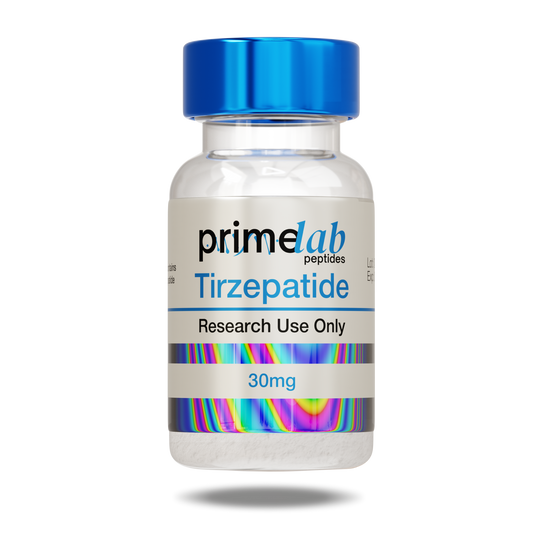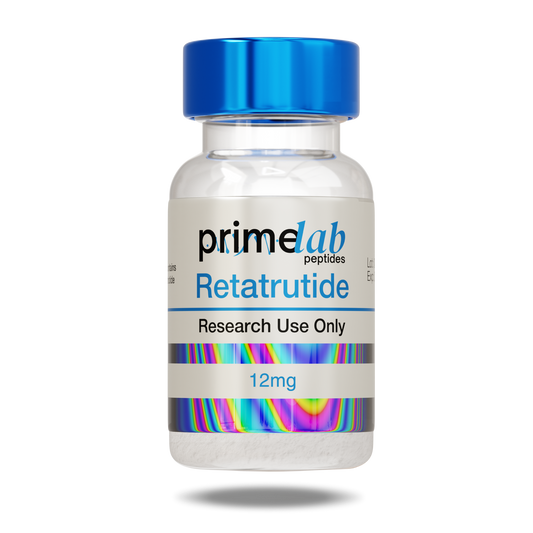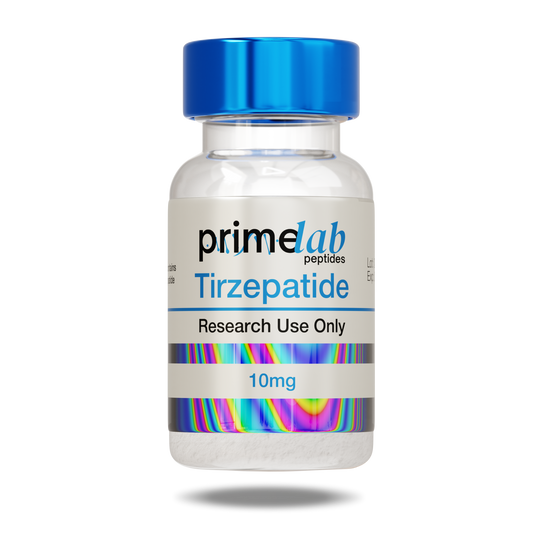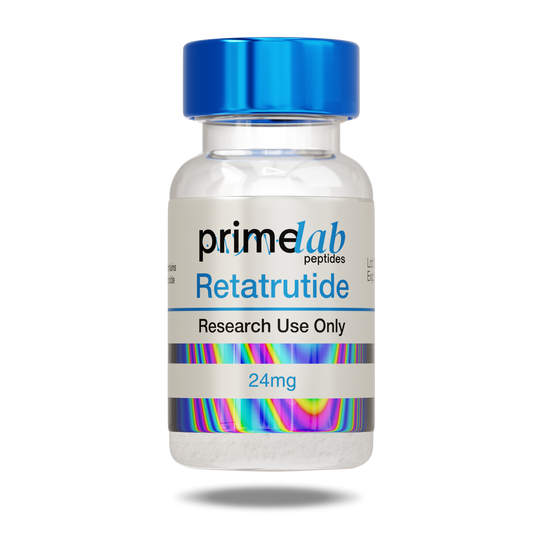All product descriptions and articles provided on this website are intended strictly for informational and educational purposes. Our products are designed exclusively for in-vitro research (i.e., experiments conducted outside of a living organism, typically in glassware such as test tubes or petri dishes). These compounds are not approved by the FDA for use in humans or animals. They are not medications, nor are they intended to diagnose, treat, prevent, or cure any disease or medical condition. Any bodily administration-human or animal-is strictly prohibited by law. Our products are not for human consumption under any circumstances.

According to the International Diabetes Federation[1], every year over 589 million adults worldwide grapple with diabetes, a number projected to soar past 850 million by 2050, making diabetes and obesity among the most urgent global health crises of our time. As the epidemic grows, so does the promise of innovative peptide therapies like semaglutide, which are reshaping treatment, offering new hope beyond traditional diets and exercise.
In recent years, peptide-based treatments have revolutionized approaches to obesity, diabetes, and metabolic health. A trailblazer in this field is semaglutide, the first GLP-1 receptor agonist approved for weight loss and type 2 diabetes management, marking a transformative step in peptide therapy innovation.
What Is Semaglutide?
Semaglutide[2] is a glucagon-like peptide-1 (GLP-1) receptor agonist that mimics the GLP-1 hormone naturally produced in the gut. This hormone plays a crucial role in satiety and glycemic regulation by slowing gastric emptying, enhancing insulin secretion, and reducing appetite signals in the brain. These combined actions contribute to lowered blood glucose levels and appetite suppression.
Additionally, semaglutide interacts with GLP-1 receptors in the hypothalamus, which helps reduce hunger, alleviate cravings, and increase feelings of fullness. Its prolonged half-life, due to molecular modifications that increase albumin binding and resist enzymatic degradation, allows for sustained therapeutic effects with once-weekly administration.
Semaglutide’s Impact: From Diabetes to Obesity

Clinical trials[3] have demonstrated semaglutide’s significant efficacy in weight loss. In a landmark long-term study, participants treated with semaglutide experienced significantly greater reductions in body weight compared to placebo, with continuous weight loss sustained over several years. The treatment not only reduced weight but also improved key metabolic and anthropometric markers that contribute to lowering risks of cardiovascular disease, diabetes, and other obesity-related complications.
These effects were consistent across age groups, sexes, races, and body mass index (BMI) categories, underscoring the drug’s broad applicability and clinical relevance. Key findings from the study include:
- Participants on semaglutide lost an average of 10.2% of their body weight over four years, compared to a modest 1.5% weight loss with placebo.
- At the 104-week mark, 67.8% of semaglutide users achieved at least 5% weight loss, a clinically meaningful threshold.
- 44.2% lost 10% or more of their body weight.
- 22.9% achieved 15% or greater weight loss.
- Continued weight loss was observed up to week 65 and sustained throughout the 4-year period in the trial.
- Women, particularly those with hormonal imbalances affecting weight management, experienced significant benefits.
- Semaglutide demonstrated safety and tolerability with a lower rate of serious adverse events compared to placebo, though discontinuation rates increased with lower BMI categories.
These results showcase semaglutide’s effectiveness as a powerful pharmacological tool for durable weight management[4] and metabolic health improvement across diverse populations
How Does Semaglutides Work?
Semaglutide functions as a glucagon-like peptide-1 (GLP-1) receptor agonist, closely mimicking a natural hormone involved in appetite regulation and blood sugar control. It exerts its effects through several complementary mechanisms to promote weight loss[5] and improve metabolic health:
1- Appetite regulation: Semaglutide activates GLP-1 receptors in the brain, especially in regions that control hunger and satiety. This leads to reduced appetite, helping individuals eat less and feel fuller for longer periods.
2- Slowing gastric emptying: By delaying the rate at which food leaves the stomach, semaglutide prolongs the feeling of fullness after meals, reducing the desire to eat more frequently or in excess.
3- Enhancing insulin secretion: Semaglutide boosts insulin release from the pancreas in response to elevated blood glucose levels, aiding better glucose regulation and reducing fat storage.
4- Reducing glucagon secretion: It decreases the release of glucagon, a hormone that raises blood sugar, which contributes to improved blood sugar control.
5- Behavioral effects: By impacting brain pathways related to food cravings and appetite, semaglutide helps modify eating behaviors, facilitating healthier eating patterns.

These combined actions result in lower calorie intake, better blood sugar stabilization, and ultimately sustainable weight loss. The drug’s long-acting profile, due to structural modifications that extend its half-life, allows once-weekly dosing and sustained effects.Benefits and Real-World Considerations: Are Peptide Therapies Right for You?
Peptide therapies offer a multifaceted approach to weight loss and metabolic health by targeting biological pathways that regulate appetite, fat metabolism, and muscle preservation. These therapies stimulate the body to burn stored fat more efficiently, boost metabolism, and maintain lean muscle mass, crucial for sustainable weight management.
Key Benefits of Peptide Therapy:
- Suppresses appetite and increases feelings of fullness, reducing calorie intake.
- Enhances metabolic rate to support more efficient calorie burning and fat breakdown.
- Improves blood sugar regulation, reducing fat storage and encouraging fat usage for energy.
- Promotes targeted fat loss, especially in stubborn areas like the abdomen.
- Supports lean muscle preservation during weight loss, improving body composition.
- Increases energy levels to sustain physical activity and well-being.
- Offers potential for significant, sustained weight loss when combined with lifestyle changes.
While peptide therapies demonstrate powerful benefits, real-world considerations include gastrointestinal side effects such as nausea and diarrhea which may affect some patients. Cost and insurance coverage can be barriers, and medical supervision is essential to monitor safety and adjust treatment. Optimal outcomes arise when therapy is paired with diet and exercise, tailored to individual health profiles for best efficacy and safety.
Advance Metabolic Research with Prime Lab Peptides’ Cutting-Edge Solutions.
Metabolic disorders such as obesity, insulin resistance, and type 2 diabetes present complex biological challenges that require innovative scientific approaches. Researchers worldwide are exploring advanced peptides to better understand appetite regulation, glucose metabolism, and energy balance.
At Prime Lab Peptides, we provide high-purity research peptides like semaglutide to support groundbreaking in-vitro studies in metabolic pathways. With our commitment to stringent quality control, scientific accuracy, and reliable supply, we empower researchers to uncover insights that may shape the future of metabolic science. Explore our peptide catalog today and accelerate your next research breakthrough with Prime Lab Peptides.
FAQS
What is semaglutide and how does it help with weight loss?
Semaglutide is a GLP-1 receptor agonist that mimics a natural hormone to reduce appetite, slow gastric emptying, and improve blood sugar control, leading to reduced calorie intake and sustained weight loss.
What are the common side effects of semaglutide?
Common side effects include nausea, vomiting, diarrhea, and occasional fatigue. Most side effects diminish over time with proper dosage adjustments under medical supervision.
Can peptide therapy be combined with other weight loss methods?
Yes, peptide therapy is most effective when combined with lifestyle changes such as diet modification and regular exercise, enhancing and sustaining weight loss outcomes.
Are there any long-term risks of using semaglutide or other peptides?
Long-term studies indicate semaglutide is generally safe with manageable side effects, but monitoring by healthcare professionals is essential to identify and address any potential risks or adverse reactions.
References



































